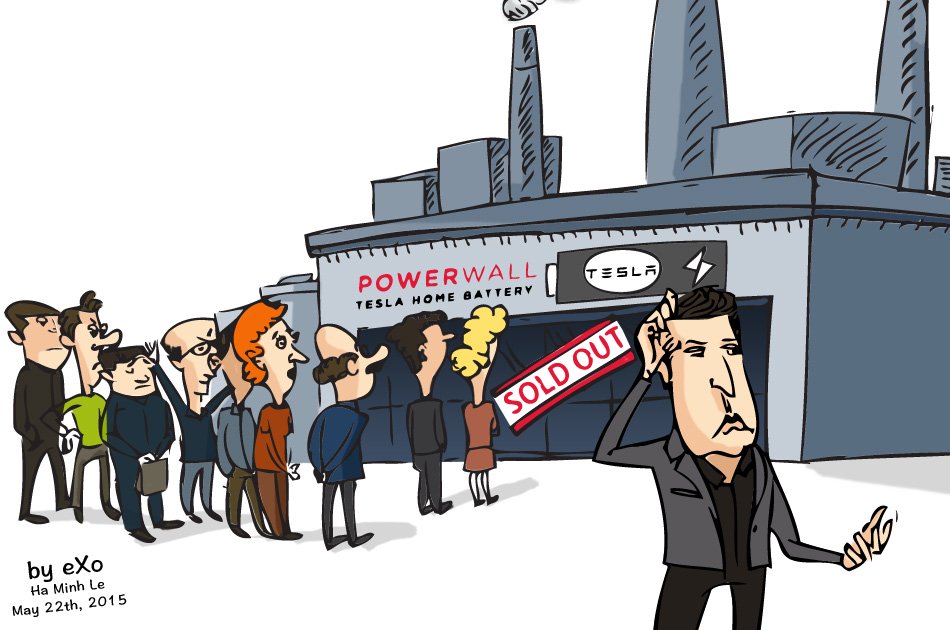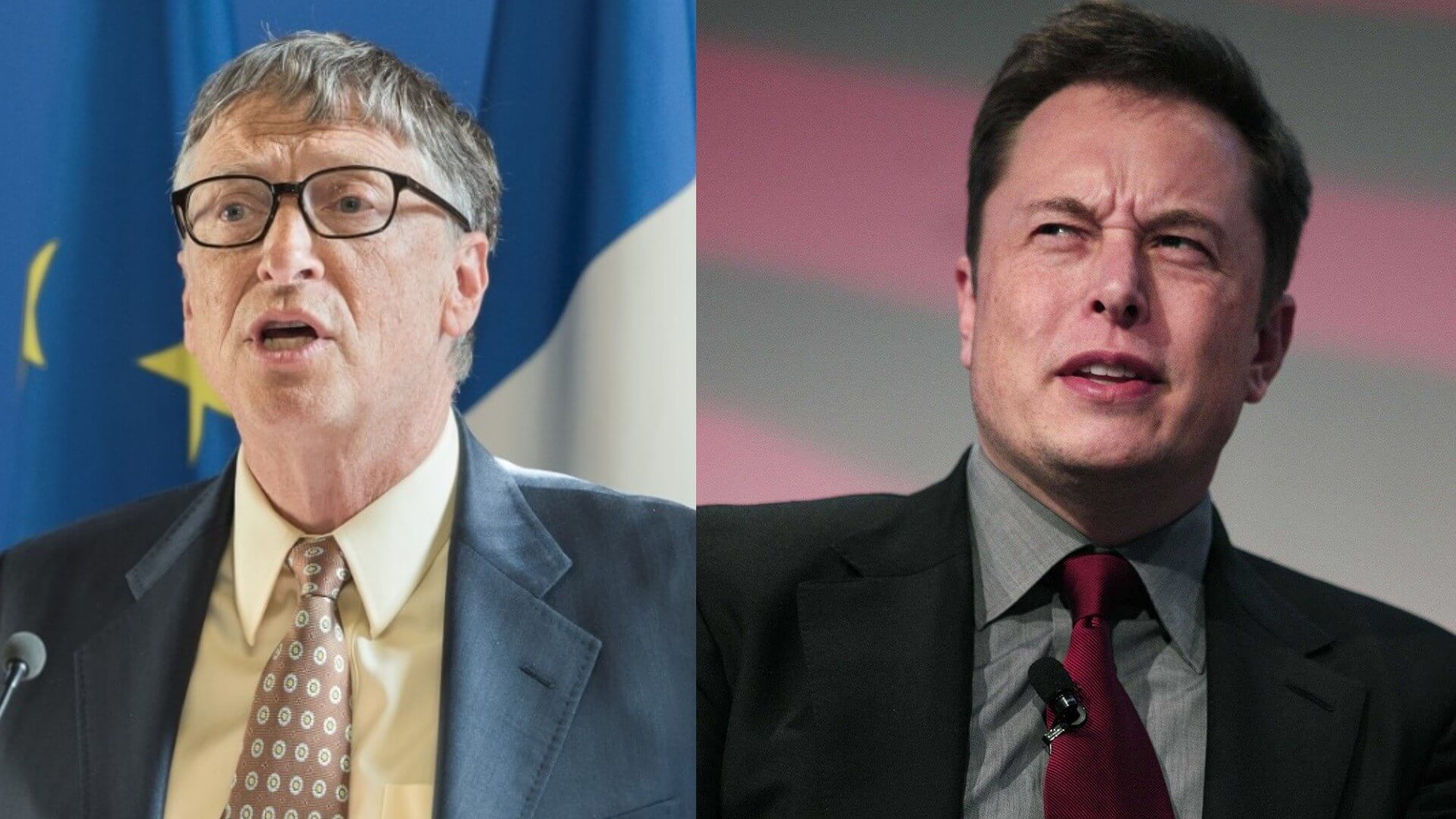Clash of the Titans; Elon Musk vs. Bill Gates – A Feud That Seems Unending As Musk Comments Saying “His Technical Understanding Has Left Planet Earth”
It said that clashes between influential figures could become the stuff of legends, which seems to be the case with the ongoing feud between two of the world's most prominent billionaires: Elon Musk and Bill Gates. These industry titans have been engaging in a public rivalry that spans topics as diverse as electric vehicles and the response to the COVID-19 pandemic. As their disagreements continue to make international headlines, it becomes clear that their feud goes beyond personal differences and reflects broader debates on innovation, philanthropy, and the influence of tech moguls in shaping our world.

Two colossal titans have been engaged in an ongoing feud that has captivated the public’s attention. Elon Musk and Bill Gates, both billionaires and pioneers in their respective domains, have been clashing on topics ranging from electric vehicles to the coronavirus pandemic.
In yet another chapter of this long-drawn feud, Musk on Sunday continued with the banter on X, Formerly Twitter, “Gates must have had technical understanding at some point in his career, but has now left planet Earth”.
Previously, Gates had stated that 18-wheeler trucks were not suitable for electric propulsion, claiming that electricity worked for short distances but not for heavy long-haul vehicles, triggering Musk, whose EV company had unveiled a fully electric semi-truck, the Tesla Semi, in 2017.
As their feud unfolds, it becomes clear that these two influential figures represent not just their own interests but also the broader implications of their ideas and actions.

The Electric Vehicle Duel
The first sparks of discord between Gates and Musk ignited over electric vehicles (EVs); while Musk’s Tesla has been synonymous with the EV revolution, Gates took a different route, opting for a Porsche Taycan when making a vehicle purchase.
Gates openly declared his choice, signalling his preference for Porsche over Tesla and Musk, never one to shy away from Twitter, responded with characteristic wit, stating that his conversations with Gates had always been “underwhelming.”
The debate intensified when Gates questioned the practicality of fully electric 18-wheelers in an August 2020 blog post about EVs. Although Gates didn’t directly mention Tesla, his scepticism about the feasibility of electric big rigs was a clear challenge to Tesla’s ambitious plans in this space; Musk, never one to hold back, retorted on Twitter, claiming that Gates had “no clue.”

COVID-19 Controversy
As the world grappled with the COVID-19 pandemic, Gates and Musk’s feud extended even to this global health crisis.
Both billionaires had been actively involved in COVID-19 efforts; Gates pledged a substantial $100 million via the Bill and Melinda Gates Foundation, while Musk redirected Tesla’s resources to produce ventilators and partnered with the German biotech firm CureVac, an organization in which Gates had invested, to aid in vaccine production.
However, the clash between their pandemic responses became evident when Gates criticized Musk’s comments on the virus.
Gates accused Musk of making “outrageous” statements and suggested that Musk should refrain from discussing the pandemic publicly.
Musk, a vocal critic of lockdown measures, had downplayed the severity of the virus, promoted untested treatments, and questioned COVID-19 data.
Musk’s Twitter account became the battleground for their disagreement. He taunted Gates with humorous tweets, playfully denying any romantic involvement and referring to Gates as a “knucklehead.”
Their differing views on the pandemic highlighted not only their personal stances but also (critically) the influence these tech moguls wield in shaping public opinion during a crisis.

The Short-Selling Saga
The feud between the two also delved into the world of finance and investment.
Elon Musk, who has long been a vocal critic of short-sellers, accused Bill Gates of hypocrisy when he learned that Gates had bet against Tesla’s stock.
Musk viewed short-sellers as adversaries who profited from a company’s failure and was incensed that Gates, known for his commitment to sustainability, would short Tesla.
Gates admitted to shorting Tesla’s stock, explaining that it was a financial decision aimed at making money. Musk, however, questioned Gates on his philanthropic efforts and asked why he would bet against a company focused on sustainable energy.

The Philanthropic Face-Off
The philanthropic aspect of their feud shed light on a deeper ideological difference.
Gates, known for his extensive charitable work through the Bill and Melinda Gates Foundation, urged Musk to embrace philanthropy more actively; this a shot at Musk, who had initiated a charitable fund, albeit primarily for tax reasons, and his contributions were relatively limited compared to Gates’ substantial philanthropic endeavours.
During a meeting at Tesla’s Gigafactory in Texas, Gates challenged Musk to consider the impact of his philanthropic choices. Gates believed that a significant portion of Musk’s wealth should be dedicated to humanitarian causes, just as Gates had influenced other billionaires through “The Giving Pledge.”
Musk, however, held a skeptical view of traditional philanthropy, asserting that most of it was ineffective, with only a small fraction of donated funds making a real difference. He contended that Gates could do more good for climate change by investing in Tesla, aligning with his belief in the power of innovation and entrepreneurial ventures to drive meaningful change.

Twitter Wars and Conspiracy Theories
Their feud took an unexpected turn when a report surfaced claiming that Gates had funded organizations opposing Musk’s acquisition of Twitter.
Musk reacted sharply on Twitter, denouncing Gates’ involvement in what he considered a smear campaign against him; in a characteristic Musk-style tweet, he teased Gates about the COVID-19 vaccine, hinting at conspiracy theories.
The revelation that some of the anti-Musk organizations were linked to wealthy Democrat donors, former U.S. presidents, and influential figures in philanthropy further fueled the controversy.

The Bigger Picture
As Elon Musk and Bill Gates continue their high-profile feud, it is essential to recognize the broader implications of their disagreements.
These two influential figures are not merely engaging in a personal rivalry; they represent divergent perspectives on issues of global importance.
Their disagreements over electric vehicles reflect the ongoing transformation of the automotive industry, with Musk advocating for a sustainable future while Gates questions the practicality of certain electric vehicle applications.
In their differing responses to the COVID-19 pandemic, they illustrated the challenges of balancing public health concerns with economic considerations, all against the backdrop of their significant influence on public opinion.
The clash over philanthropy further accentuates the debate surrounding the effectiveness of traditional charitable giving versus innovative solutions to societal challenges.
The Last Bit, The ongoing feud between Elon Musk and Bill Gates has been a riveting spectacle, offering insight into the clash of ideas, philosophies, and personalities.
Their disagreements on topics such as electric vehicles, the COVID-19 pandemic, and philanthropy have not only captured the public’s attention but also raised crucial questions about the future of innovation, global crises, and the role of billionaires in shaping our world.
While their jabs and tweets may entertain, it is essential to recognize that this feud highlights the immense power and responsibility that tech moguls like Musk and Gates bear, and their actions and statements reverberate far beyond personal rivalries, impacting industries, economies, and public opinion.
Hence, as the world grapples with challenges like climate change, global health crises, and social inequality, the influence of these tech titans becomes increasingly significant.



